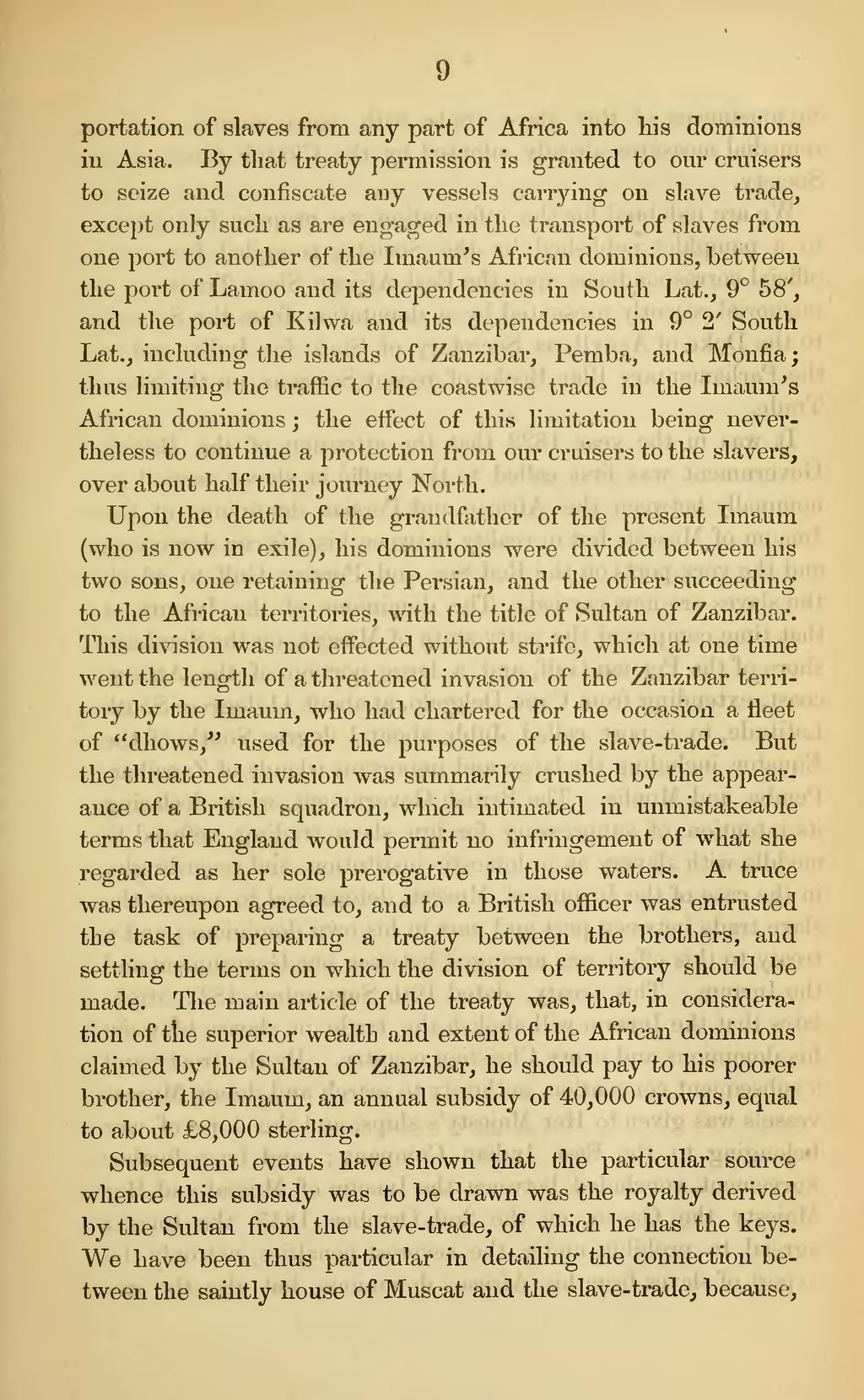9
portation of slaves from any part of Africa into his dominions in Asia. By that treaty permission is granted to our cruisers to seize and confiscate any vessels carrying on slave trade, except only such as are engaged in the transport of slaves from one port to another of the Imaum's African dominions, between the port of Lamoo and its dependencies in South Lat., 9° 58', and the port of Kilwa and its dependencies in 9° 2' South Lat., including the islands of Zanzibar, Pemba, and Monfia; thus limiting the traffic to the coastwise trade in the Imaum's African dominions; the effect of this limitation being nevertheless to continue a protection from our cruisers to the slavers, over about half their journey North.
Upon the death of the grandfather of the present Imaum (who is now in exile), his dominions were divided between his two sons, one retaining the Persian, and the other succeeding to the African territories, with the title of Sultan of Zanzibar. This division was not effected without strife, which at one time went the length of a threatened invasion of the Zanzibar territory by the Imaum, who had chartered for the occasion a fleet of "dhows," used for the purposes of the slave-trade. But the threatened invasion was summarily crushed by the appearance of a British squadron, which intimated in unmistakeable terms that England would permit no infringement of what she regarded as her sole prerogative in those waters. A truce was thereupon agreed to, and to a British officer was entrusted the task of preparing a treaty between the brothers, and settling the terms on which the division of territory should be made. The main article of the treaty was, that, in consideration of the superior wealth and extent of the African dominions claimed by the Sultan of Zanzibar, he should pay to his poorer brother, the Imaum, an annual subsidy of 40,000 crowns, equal to about £8,000 sterling.
Subsequent events have shown that the particular source whence this subsidy was to be drawn was the royalty derived by the Sultan from the slave-trade, of which he has the keys. We have been thus particular in detailing the connection between the saintly house of Muscat and the slave-trade, because.
